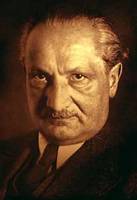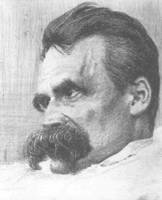"He [i.e. Dewey] studiously avoided participating in what he regarded as the unfortunate practice of previous moral philosophers of offering general rules that legislate universal standards of conduct. But there are strong suggestions in a number of his works of basic ethical and social positions. In Human Nature and Conduct Dewey approaches ethical inquiry through an analysis of human character informed by the principles of scientific psychology. The analysis is reminiscent of Aristotelian ethics, concentrating on the central role of habit in formulating the dispositions of action that comprise character, and the importance of reflective intelligence as a means of modifying habits and controlling disruptive desires and impulses in the pursuit of worthwhile ends" (Richard Field, The Internet Encyclopedia of Philosophy).Blosser: First, it goes without saying that most philosophers of this sort are generally people of good and decent morals. It shouldn't surprise us, therefore, when they express horror at tyranny and injustice, and when they want to "ward off nihilism."
Second, however, the more important question is whether they have any standards of right and wrong by reference to which they can justify these sentiments.
Third, it strikes me that Dewey's aversion to formulating general principles stems from the fact that he doesn't have any principles for which he feels he can furnish an adequate justification. It's one thing to furnish a psychology of moral behavior, as can be found in Humean emotivism or Aristotelian virtue theory; but it's quite another to furnish viable ethical principles. Here a pertinent question would be whether Dewey's psychology of emotions and appetites presupposes any clear notion of the good, as does Aristotles; for without such a notion, one remains wholly at sea with nothing to orient him.
Fourth, given the lack of any principles in Dewey, his disposition to "ward off nihilism" strikes me as comparable (provided we substitute the word "principles" for "God") to that of those French professors towards 1880, who were castigated by Jean-Paul Sartre for trying to formulate a secular morality in words such as the following:
"God is a useless and costly hypothesis, so we will do without it. However, if we are to have morality, a society and law-abiding world, it is essential that certain values should be taken seriously ... It must be considered obligatory a priori to be honest, not to lie, not to beat one's wife, to bring up children and so forth; so we are going to do a little work on this subject, which will enable us to show that these values exist all the same, inscribed in an intelligible heaven although, of course, there is no God. In other words -- and this is, I believe the purport of all that we in France call radicalism -- nothing will be changed if God does not exist; we shall re-discover the same norms of honesty, progress and humanity, and we shall have disposed of God as an out-of-date hypothesis which will die away quietly of itself. The existentialist, on the contrary, finds it extremely embarrassing that God does not exist, for there disappears with Him all possibility of finding values in an intelligible heaven. There can no longer be any good a priori, since there is no infinite and perfect consciousness to think it. It is nowhere written that 'the good' exists, that one must be honest or must not lie, since we are now upon the plane where there are only men. Dostoevsky once wrote 'If God did not exist, everything would be permitted"; and that, for existentialism, is the starting point." (From Jean-Paul Sartre, Existentialism is a Humanism)Foster: In his new work, Ethics without Ontology, Hillary Putnam has a chapter entitled "Objectivity without Objects." This chapter, in my opinion, is really key to understanding what he's trying to do with respect to ethical theory. On p. 68-69, he writes:
"Once again, I suggest that such 'Platonism' [as that posited by G.E. Moore, et al.] is uncalled for. We needn't think that we are describing non-natural properties when we say that a theory is beautiful or simple or coherent. What we are doing is extremely complex, but here is a rough account: just as ethically important adjectives 'cruel' and 'compassionate' describe properties that human beings may have or lack, not supernatural properties, but also not properties that one can simply perceive (or 'measure') without having understood and learned to imaginatively identify with a particular evaluative outlook, so 'simple' and 'coherent' (in their scientific applications) describe properties that certain human products, scientific theories may have or lack, and that one cannot perceive without having understood and learned to imaginatively identify with a particular evaluative outlook."Sorry for the length of the sentence above, but I think it helps to explain why Putnam rejects ontology in favor of evaluative objectivity. When we say that a certain person is "cruel," we are really talking about a property that we have ascertained the person possesing after we've learned what it means to be "cruel" through evaluative or imaginative means. There is no need to posit a supersensible or intelligible form "cruelty" to explain what we mean by the proposition, "John is a cruel person."
Blosser: First of all, it seems to me that Putnam is here saying something that is quite unextraordinary. Who in his right mind would claim that "cruelty" or "compassion" denote visible "objects," any more than "sin" or "grace"? But this does not mean that objective moral absolutes (such as "cruelty is always wrong" or "compassion is always good") -- which are NOT relative to time, place, or opinion -- do not exist.
Second, while "objectivity without objects" could mean no more than I've said in the foregoing paragraph, it seems to me that Putnam is probably playing off the ambiguity involved in his notion of "objectivity without objects" to imply that the grounds for moral right and wrong are not found in any extra-individual or extra-communal absolutes. But I would regard that as a ludicrously untenable position, which lands one back in some form of individualistic or, more likely, communalistic subjectivism and relativism, with no more basis for justifying moral behavior than he began with.
Foster: For Putnam and Dewey, one must evidently be educated (properly) in order to participate in the adjudication of the ethical life; ethics is also a communal activity. Putnam says that education in a democratic setting "transforms" the "interests and aspirations" of the community. He is most explicit on this point when he pens the following words:
"Any human problem at all, insofar as it impacts our collective or individual welfare, is thus far 'ethical'--but it may also be at the same time aesthetic, or logical, or scientific, or just about anything else . . ." (Ethics without Ontology, p. 107).According to Putnam and Dewey, ethics should not be the sole confine of philosophers. All members of a democratically-based community (espoused by Dewey and Putnam) should have a part in shaping what is right, wrong, just or virtuous for the community. Knowledge of what is "ethical" will be based on scientific findings and transformative education. Putnam reasons that ethics should be a "pragmatic" activity, engaged in for the good of the community. The best person to ask how a certain pair of shoes fit is the one wearing them. Likewise, the community can best determine its own needs, after it has been morally transformed through education in a democratic setting and after it develops prowess for evaluative or imaginative functions.
Blosser: This, of course, is simply the relativism of Group-Think subjectivism. I'm not surprised that Putnam revisits Dewey's socially-based attempt to build a viable ethics. When one has jettisoned God and natural law and all objective absolutes and principles, what else is left? The putative "needs" of the community. The trouble with this prescription, however, as any circumspect educator knows, is that half the time people (like students) don't know what they need because they have only the foggiest notion of what is really good for them, which presupposes a notion of a real objective good. What Putnam & Dewey sink to here is a kind of collective emotivism: the "good" is defined by what the collective "likes"; and we all know where that leads. Imagine a university curriculum based on polling the matriculating students on what they would like in the way of studies, disciplines, books, exams, and term papers.
Foster: Putnam's thought is not well developed in Ethics without Ontology. But I think it can be summarized in two words: "rationality" and "experimentation." In toward a discourse ethics approach, though I do not want to say that he totally agrees with Jurgen Habermas, who is well know for his communicative ethics. In any event, it is clear that he believes the decision to alleviate suffering should be one informed by education (in the Deweyan sense), one worked out by a community and fit the accepted communal standards for rationality and what is scientific or psychologically valid.
Blosser: "Rationality" offers no more of a standard for determining what's right and wrong than logic, to say nothing of "experimentation." One needs "content" to define what is "rational," and to guide experimentation. One would be a fool to suppose that ethics shouldn't be informed by "education" or interaction with his "community." But neither education nor the community guarantees any access to objective standards, as such. One might be as apt to discover true principles studying the dusty writings of DWEMs (dead white European males) on his own in the library as from his university or social community.


 I have occasionally expressed the view that modern and contemporary philo-sophers often disappoint-- that they take a lot of work to fathom, and once one fathoms them, one can have the feeling that it wasn't worth the effort. One is reminded of a remark by Fr. Norris Clarke, S.J., of Fordham University: there are three kinds
I have occasionally expressed the view that modern and contemporary philo-sophers often disappoint-- that they take a lot of work to fathom, and once one fathoms them, one can have the feeling that it wasn't worth the effort. One is reminded of a remark by Fr. Norris Clarke, S.J., of Fordham University: there are three kinds 


